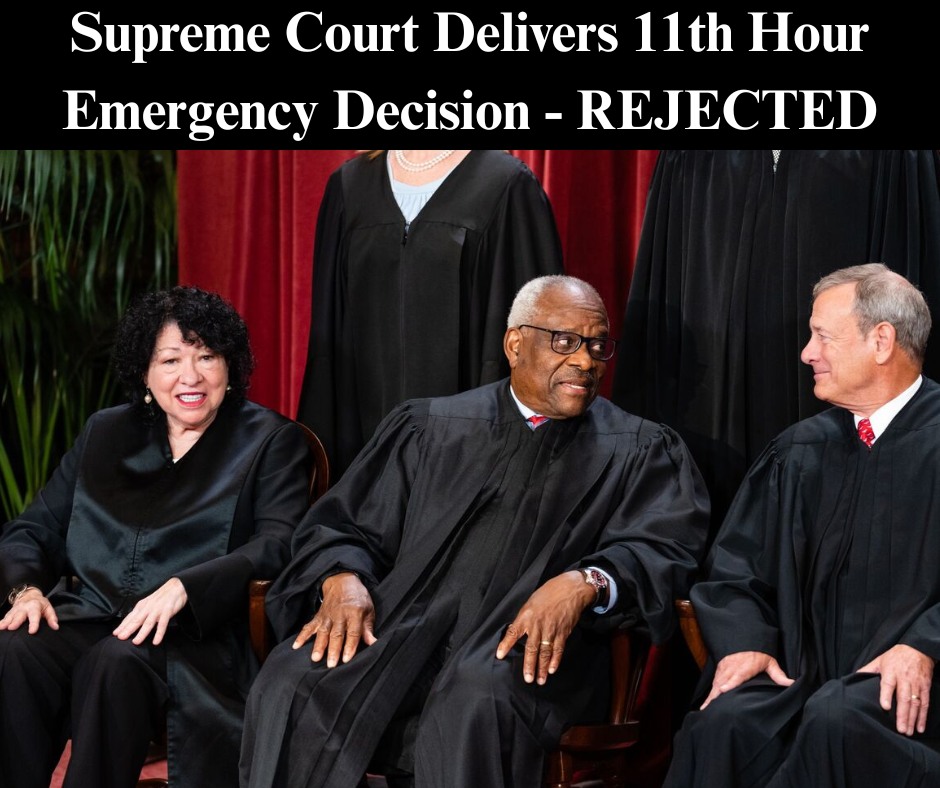The U.S. Supreme Court on Monday declined to hear an appeal from Karen Read, a Massachusetts woman accused of killing her boyfriend, Boston police officer John O’Keefe, in 2022.
Read had petitioned the high court, arguing that the jury in her first trial had reached a unanimous but unannounced verdict acquitting her on some charges, and that a second trial on those counts should be barred under the double jeopardy clause, Bloomberg Law reported.
The trial ended in a mistrial after the jury reported being deadlocked. Norfolk Superior Court Judge Beverly Cannone did not inquire further, but Read’s attorneys contend there is strong evidence the jury was only hung on one of the three charges.
Following the mistrial, several jurors contacted the defense team, stating the jury had unanimously agreed that Read was not guilty of second-degree murder or of leaving the scene of a collision resulting in death, the outlet said. According to her lawyers, the only charge the jury could not reach a verdict on was manslaughter while operating under the influence of alcohol.
Read’s petition asked whether a unanimous but unannounced finding that the prosecution failed to prove its case constitutes an acquittal under the double jeopardy clause. She also questioned whether a defendant who presents credible evidence of such an unannounced verdict is entitled to a post-trial hearing to verify it, noted Bloomberg.
Read is accused of backing her Lexus SUV into O’Keefe during a snowstorm after a night of heavy drinking. Her attorneys argue that someone else is responsible for O’Keefe’s death and have alleged a law enforcement cover-up.
Her second trial before Judge Cannone is now in its second week. Read had requested a stay from the Supreme Court, but Justice Ketanji Brown Jackson denied the application on April 9, the report said.
Meanwhile, the high court has again declined to overturn the ban on assault weapons and high-capacity magazines enacted by the state of Illinois.
To prevent the ban’s enforcement, a gun rights organization and a gun shop owner petitioned the Supreme Court for an emergency ruling, claiming that the restrictions violate their right to bear arms, but that argument was shot down.
The Democratic-controlled state of Illinois enacted stricter gun control laws in the wake of a mass shooting that occurred during a Fourth of July celebration in Highland Park, killing seven and injuring scores more.
The ban, signed by Democratic Gov. J.B. Pritzker in January, includes penalties for any individual who “carries or possesses… manufactures, sells, delivers, imports, or purchases any assault weapon or .50 caliber rifle.”
It also includes statutory penalties for anyone who “sells, manufactures, delivers, imports, possesses, or purchases any assault weapon attachment or .50 caliber cartridge.”
Any kit or tools used to increase the fire rate of a semiautomatic weapon is also included in the ban, and the law includes a limit for purchases of certain magazines. Following Thursday’s ruling, the lower courts will continue to litigate the law.
The Law Weapons and Supply firearm store owned by Robert Bevis, the National Association for Gun Rights, and the National Association for Gun Rights are claiming that these laws violate the Supreme Court’s new standard for determining whether or not something violates the Second Amendment.
“Delaying a right results in its denial, and enforcing these gun bans every day is an affront to freedom.” We will be back to the Supreme Court as soon as our legal team finishes drafting our cert petition, and they will have to decide if they meant what they said in Heller and Bruen,” Dudley Brown, the group’s president, said.
Last year, the six conservative justices who constituted the Supreme Court announced a historic ruling: stricter gun control laws must be in line with the longstanding American practice of regulating firearms.
